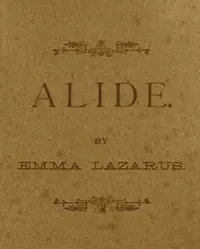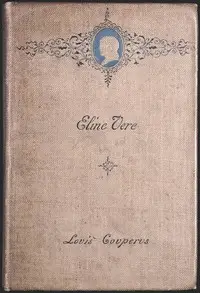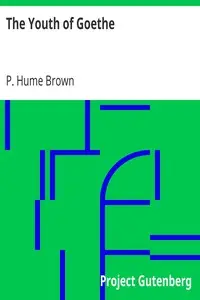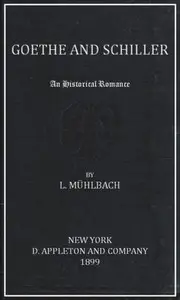"Alide: An Episode of Goethe's Life" by Emma Lazarus is a historical fiction that transports readers to the 19th-century, focusing on the youth of the famous poet Johann Wolfgang von Goethe. The story follows Goethe, under the guise of Dr. Julius Steck, as he becomes entangled with the Duroc family and finds himself drawn to the spirited Alide. The novel explores Goethe's early romances and social experiences, mixing real-life elements with fictional accounts. The contrast between Goethe's artistic soul and the Duroc's simple, country life creates a rich backdrop for his growing infatuation with Alide. Their interactions are filled with humor and affection, highlighting Goethe's yearning for connection beyond the academic world, inviting readers to explore themes of young love, reflection, and identity in a vibrant literary landscape.

Alide: an episode of Goethe's life.
By Emma Lazarus
Under an assumed identity, a young, brilliant poet finds his heart stirred by a captivating young woman amidst the backdrop of a serene family estate.
Summary
About the AuthorEmma Lazarus was an American author of poetry, prose, and translations, as well as an activist for Jewish and Georgist causes. She is remembered for writing the sonnet "The New Colossus", which was inspired by the Statue of Liberty, in 1883. Its lines appear inscribed on a bronze plaque, installed in 1903, on the pedestal of the Statue of Liberty. Lazarus was involved in aiding refugees to New York who had fled antisemitic pogroms in eastern Europe, and she saw a way to express her empathy for these refugees in terms of the statue. The last lines of the sonnet were set to music by Irving Berlin as the song "Give Me Your Tired, Your Poor" for the 1949 musical Miss Liberty, which was based on the sculpting of the Statue of Liberty. The latter part of the sonnet was also set by Lee Hoiby in his song "The Lady of the Harbor" written in 1985 as part of his song cycle "Three Women".
Emma Lazarus was an American author of poetry, prose, and translations, as well as an activist for Jewish and Georgist causes. She is remembered for writing the sonnet "The New Colossus", which was inspired by the Statue of Liberty, in 1883. Its lines appear inscribed on a bronze plaque, installed in 1903, on the pedestal of the Statue of Liberty. Lazarus was involved in aiding refugees to New York who had fled antisemitic pogroms in eastern Europe, and she saw a way to express her empathy for these refugees in terms of the statue. The last lines of the sonnet were set to music by Irving Berlin as the song "Give Me Your Tired, Your Poor" for the 1949 musical Miss Liberty, which was based on the sculpting of the Statue of Liberty. The latter part of the sonnet was also set by Lee Hoiby in his song "The Lady of the Harbor" written in 1985 as part of his song cycle "Three Women".










